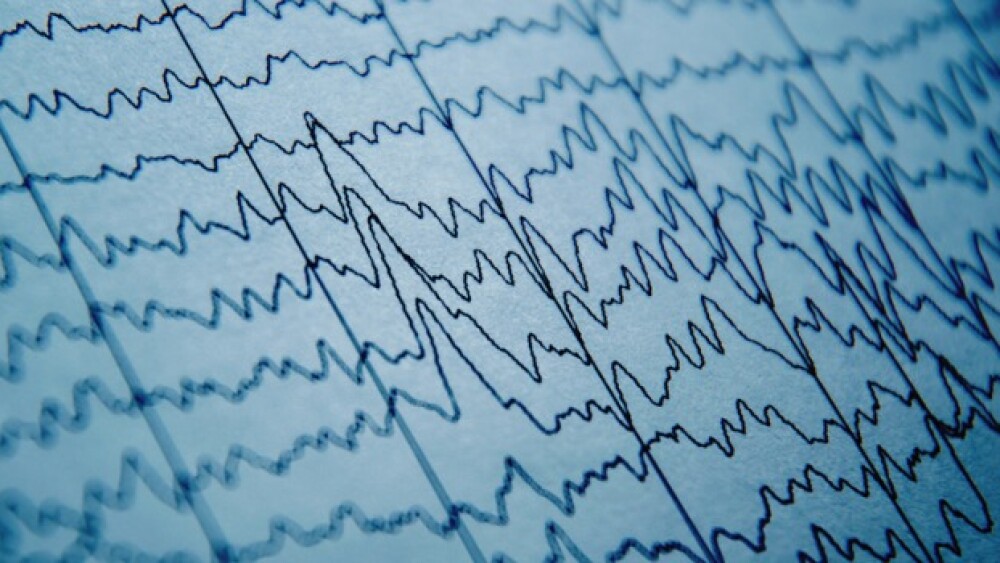ALTO-300 was significantly more effective in major depressive disorder patients with a specific EEG biomarker than in those without, according to results from an Alto Neuroscience Phase IIa study.
Pictured: Illustration of an electroencephalogram readout/iStock, Maryna Ievdokimova
Alto Neuroscience on Monday announced that its candidate ALTO-300 met its primary endpoint in a Phase IIa major depressive disorder trial, inducing significant symptomatic improvement in patients bearing a specific electroencephalogram-based biomarker.
The mid-stage study enrolled 239 patients with major depressive disorder (MDD) who had shown suboptimal responses to antidepressants. ALTO-300 was given as an adjunctive therapy to these patients, who also stayed on background antidepressant treatment. The study’s primary endpoint was the four-week change in depressive symptoms, as measured by the Montgomery–Åsberg Depression Rating Scale (MADRS).
At baseline, Alto put 110 patients through an electroencephalogram (EEG) and applied their machine learning-enabled platform to identify a biomarker-defined subpopulation of patients who are more likely to respond to ALTO-300 treatment.
The artificial intelligence platform focuses on “core domains of mental functioning,” such as cognition, emotion and sleep, as well as the “underlying brain circuits,” according to the company’s website.
Alto’s results showed that as early as week one, patients with the EEG biomarker saw a mean 8.3-point drop in MADRS score versus 5.7 points in comparators without the biomarker profile. The difference was statistically significant, with a p-value of 0.03, according to the company’s announcement.
Through eight weeks of observation, ALTO-300 remained significantly more effective in patients with the EEG biomarker than in those without.
In addition, a significantly higher proportion of patients with the EEG biomarker achieved clinical response, defined as at least a 50% reduction in symptoms of depression, compared with participants without the biomarker.
ALTO-300 also demonstrated “favorable safety and tolerability” in patients, inducing no unexpected treatment toxicities, according to Alto.
Monday’s mid-stage win is the third clinical victory for Alto’s precision platform. In January 2023, the California-based biotech posted positive data for BDNF-targeted candidate ALTO-100, which likewise aced a Phase IIa study in MDD.
Topline data showed that 61% of biomarker-defined patients demonstrated clinical response to ALTO-100 versus only 33% of comparators who did not have this biomarker. At six weeks, the MADRS score dropped by a mean of 15.5 points compared to 10.6 points in patients with and without the biomarker, respectively.
In September 2023, Alto again released promising data for ALTO-100, this time in post-traumatic stress disorder. In patients bearing a specific cognitive biomarker, ALTO-100 treatment decreased scores in the clinician-administered PTSD scale for DSM-5 (CAPS-5) by 17.5 points, compared to only 12.9 points in those without this cognitive profile.
Tristan Manalac is an independent science writer based in Metro Manila, Philippines. He can be reached at tristan@tristanmanalac.com or tristan.manalac@biospace.com.






